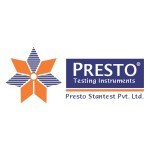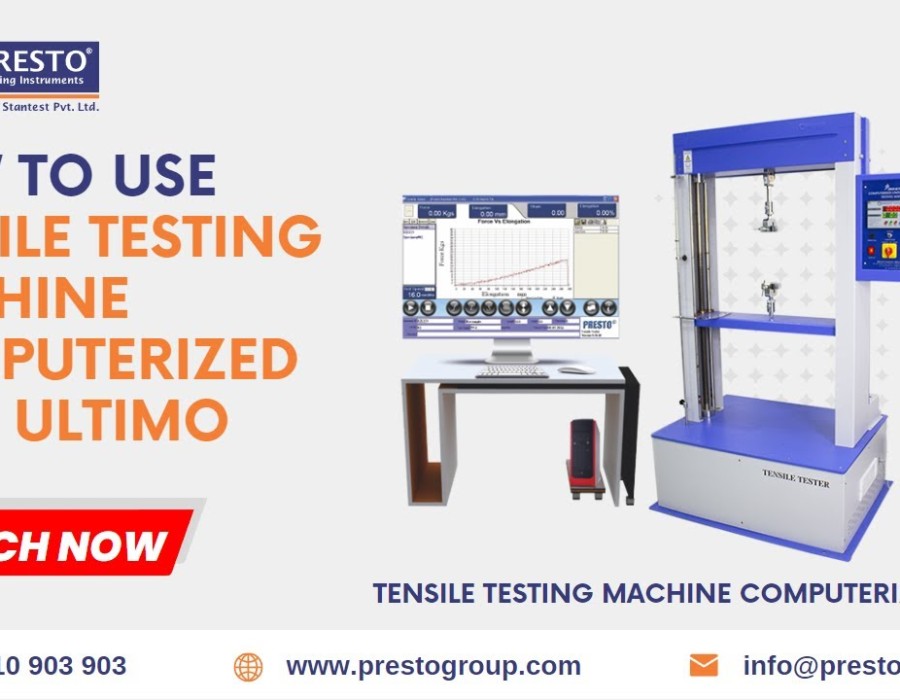A tensile strength test is an important process to check how strong a material is before it breaks. Industries use tensile testers to measure this property in metals, plastics, rubber, and other materials. However, the tensile tester price depends on various factors. Let’s explore the key elements that affect the cost of these machines.
1. Type of Tensile Tester
There are different types of tensile strength testers, and their cost varies based on the type:
- Manual Tensile Testers – Basic models that require manual operation. They are usually cheaper.
- Digital Tensile Testers – Advanced models with digital displays and automation, which cost more.
- Universal Testing Machines (UTMs) – These machines can perform multiple tests, including tensile compression tests, making them more expensive.
2. Machine Capacity & Load Range
- Some materials require higher load capacities, which means the machine should be strong enough to handle the force.
- A machine with a higher load range (e.g., 50kN, 100kN, or more) will cost more than one with a lower load range.
- Choosing the right capacity ensures accurate results and durability.
3. Accuracy & Precision
- High-precision machines with advanced sensors are more expensive.
- Industries that need extremely accurate tensile strength tests, such as aerospace and medical fields, invest in premium models.
4. Automation & Digital Features
- Fully automatic tensile testers require little human effort and provide quick and error-free results. These models are costly.
- Digital display and software integration add to the price but make testing easier.
- Machines with touchscreen panels, data storage, and analysis software are more expensive.
5. Build Quality & Material
- Machines made with high-quality metals last longer and withstand heavy loads.
- Cheaper models use lightweight materials but may not last long or provide accurate results.
6. Brand Reputation & Manufacturer Support
- Choosing a trusted tensile strength tester manufacturer ensures better quality and service.
- Well-known brands offer:
- Warranty & service support
- High-quality spare parts
- Reliable test results
- Lesser-known manufacturers may offer cheaper options but lack quality assurance.
7. Additional Testing Capabilities
Some machines perform both tensile and compression tests, increasing their value.
- Tensile compression testers check both the stretching and compressing strength of materials.
- These multi-purpose machines cost more but are beneficial for industries needing multiple tests.
8. Compliance with Testing Standards
- Machines designed to meet international standards like ASTM, ISO, and BIS are more expensive.
- Industries requiring certified testing equipment should invest in these high-standard machines.
9. Accessories & Customization
- Some machines come with custom grips, software, or special testing fixtures.
- These additional accessories increase the cost but improve the testing experience.
How to Choose the Right Tensile Tester?
- Define your testing needs – Do you need only tensile testing or multiple tests?
- Decide your budget – Check features that match your budget.
- Compare brands & features – Choose a trusted tensile strength tester manufacturer with good support.
- Consider long-term investment – A quality machine may cost more but will last longer and provide accurate results.
The tensile tester price varies based on type, capacity, precision, automation, and brand. A good quality tensile strength tester manufacturer ensures reliable results, durability, and compliance with standards. Investing in the right tensile compression tester helps industries improve product quality and performance.
Presto Group offers reliable and advanced testing equipment to meet your industry needs. Our expert team is here to help you choose the right machine for accurate and efficient results.
Call us now: +91 9210 903 903
Email us: [email protected]
Upgrade your testing process with Presto Group – trusted by industries worldwide!






Comments